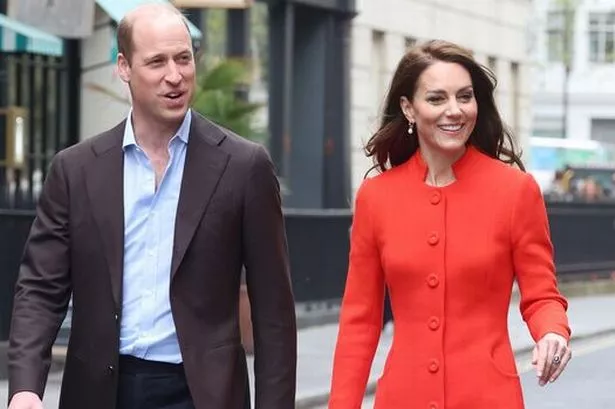The News
Meghan Markle and Prince Harry: Advocating for Change or Deflecting Criticism?
The latest controversy involving Meghan Markle and Prince Harry has ignited a whirlwind of discussions about privilege, accountability, and the intricate dynamics of celebrity culture.
Recently, the Duke and Duchess of Sussex have made headlines for their pointed criticism of Mark Zuckerberg, the founder of Facebook.
They accused him of fostering an environment where bullying and misinformation thrive on social media.
While their intentions might seem noble, many are questioning the authenticity of their stance, especially considering their own experiences in the public eye.
During a recent high-profile event, the couple voiced their concerns about the negative impact of social media on mental health.
They specifically called out Zuckerberg, suggesting that his platform contributes to an atmosphere that enables harassment and bullying.
However, while their efforts to shed light on the darker side of social media are commendable, critics quickly highlighted the irony of their statements.
After all, Meghan and Harry have often found themselves at the center of media storms driven by sensationalist reporting and rampant speculation.
The timing of their critique is particularly noteworthy, coinciding with ongoing debates about the responsibilities of tech giants in managing content on their platforms.
Although advocating for healthier online spaces is a worthy cause, Markle and Harry's own history with the media complicates their message.
They have been vocal about the relentless coverage and negative portrayals they've endured, which raises questions about their ability to champion the fight against online bullying while also benefiting from their royal status.
As the conversation evolved, commentators began drawing parallels between the couple's experiences and the very issues they were condemning.
Social media serves as a double-edged sword; it can amplify voices that typically go unheard but also magnifies negativity and harmful narratives.
Critics argue that by publicly targeting Zuckerberg, the couple may be deflecting attention from their own role in the media ecosystem, where they have been both victims and beneficiaries of the same forces they criticize.
This irony hasn't gone unnoticed, with social media users taking to various platforms to express their outrage and others defending the couple's right to speak out against bullying.
Yet, the overarching theme of hypocrisy looms large.
Many believe that if Markle and Harry genuinely want to advocate for change, they must first confront their own complexities within the narrative of celebrity and media.
In the aftermath of their remarks, public sentiment shifted.
Supporters rallied on social media to voice their backing, while detractors seized the opportunity to critique the couple.
This debate has morphed into a wider discussion about the influence of celebrity on public discourse and the inherent responsibilities that come with such platforms.
As prominent figures, Meghan and Harry find themselves walking a tightrope between advocacy and accountability, all while grappling with their past actions.
Supporters argue that their personal experiences uniquely qualify them to discuss mental health and bullying, especially given their struggles with public scrutiny.
However, this viewpoint is countered by those who contend that their privileged background as former royals distances them from the everyday realities faced by individuals experiencing online harassment.
As the discourse continues, it's evident that Markle and Harry's comments have sparked a firestorm of debate, prompting us to consider the broader implications of celebrity culture on societal norms.
Can individuals who have enjoyed a life of privilege and fame genuinely lead conversations about bullying and mental health?
Or do their past actions and privileges undermine their credibility as advocates?
Critics have emerged from all corners, highlighting various aspects of the couple's perceived hypocrisy.
A significant point raised is how Meghan and Harry have occasionally utilized the media to amplify their narratives while simultaneously condemning it as a toxic force.
Observers have noted that their selective engagement with certain media outlets contradicts their recent denunciations of the press, raising questions about their authenticity.
Furthermore, skeptics have scrutinized the couple's past behavior on social media, suggesting that they have, at times, engaged in tactics that could be seen as bullying themselves.
Their responses to critics on social media have sometimes appeared combative, leading to doubts about their commitment to fostering a healthier online environment.
Another angle of criticism revolves around their privileged status and how it shapes their perspective on bullying and mental health.
Many argue that their experiences do not reflect the struggles of the average person dealing with online harassment.
Their royal status and financial security create a divide between their lived experiences and those of everyday individuals.
The timing of their remarks has also raised eyebrows.
Some critics suggest that their public condemnation of Zuckerberg coincided with moments when they were facing backlash for their own decisions, including stepping back from royal duties.
This has led to speculation that their comments were strategically timed to divert attention away from their controversies rather than stemming from a genuine desire for change.
Lastly, while their concerns about social media's impact on mental health are valid, critics argue that simply blaming platforms like Facebook is not enough.
Meaningful change requires a deeper understanding of the problem, one that encompasses personal responsibility and accountability.
By focusing their ire solely on Zuckerberg, Meghan and Harry may be overlooking the complexities of the broader conversation surrounding social media and its role in shaping public discourse.






























































